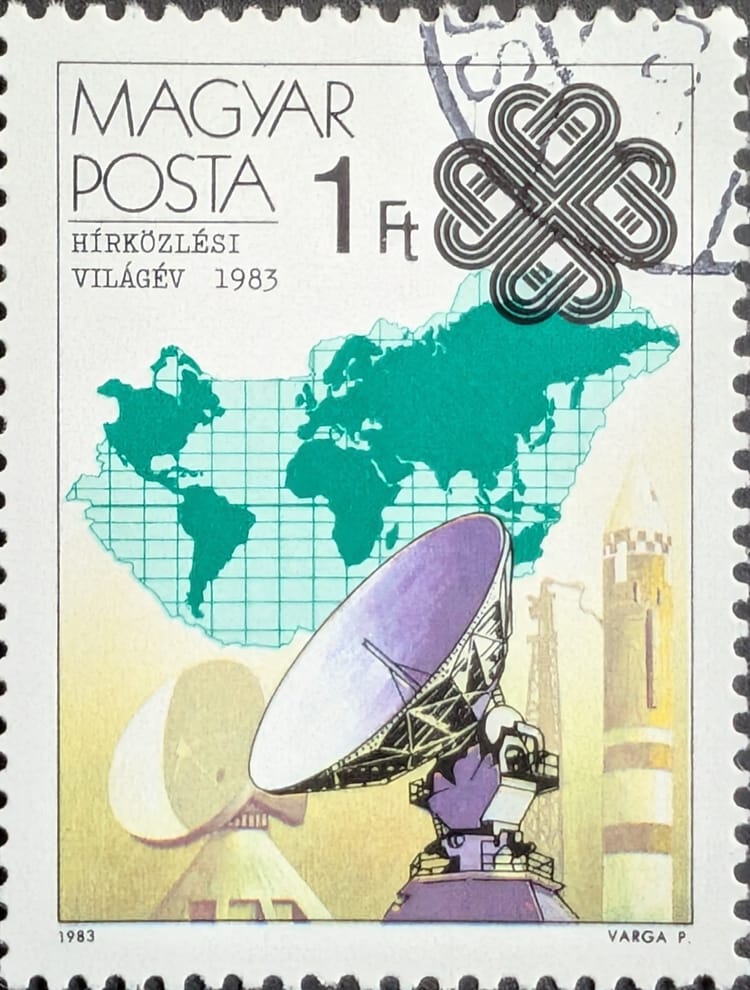Astra’s Launch, Its Market(s); Musk’s Interview and Management

Nearly two weeks ago, Astra Space finally successfully launched a rocket and deployed a dummy payload into orbit. While one successful launch doesn’t prove that the small company has an operational and reliable rocket, it is still a milestone.
Saying it doesn’t make it true
Hopefully, Astra continues focusing on tweaking the inevitable and unforeseen teething problems of its rocket. Once those are discovered and ironed out, Astra would eventually offer it to more customers who currently aren’t willing (understandably) to serve as launch service beta testers. Alas, that hope may be premature as the company’s CEO stated the following in a press release about the successful launch:
“We can now focus on delivering for our customers and scaling up rocket production and launch cadence.”
Still, the words “baby steps” come to mind whenever rocket development is involved.
Astra also couched the wording of its press release a bit strangely.
“Astra Space, Inc. (“Astra”) (Nasdaq: ASTR), successfully completed its first commercial orbital launch for the United States Space Force late Friday night, November 19, 2021, PST..”
Astra then puts the following caveat at the bottom of the press release:
“When we use the phrase “commercial orbital launch,” we mean a launch conducted under a FAA Commercial Launch License.”
The bolded highlighting is mine, but based on that statement, Astra appears to want that “commercial cred,” even though it’s launching its rocket for a military organization. I am at a loss for any other good reason that a new company attempted to make this distinction on its very first successful launch.
However, just because a company says it’s so, and its reference has the word “commercial” in its title, doesn’t mean it’s true. In fact, it’s like the other launches the United Launch Alliance, Northrop Grumman, and SpaceX conduct whenever the military contracts a launch with them. Typically, even though those are commercial companies, when they launch a military payload, that launch is identified as military because it’s funded by the military and is intended for military purposes. So, yay(??), Astra just conducted a type of launch (for a military customer) that its competitors are licensed to do as well.
More launches, but less revenue?
Astra’s launch attempt and successful launch during 2021 looks to become a part of a history-making trend. With a month to go, about 123 launches to orbit have been attempted for 2021 so far. That’s higher than last year’s total of ~112 and even higher than 2018’s total launch attempts (114). But more launches don’t imply increased revenues.
The business that Astra is attempting to break into, small satellite launch services, has customers. Still, the trade-off for high launch numbers in 2021 is that most launches were for deploying those customers less profitable small satellites. The majority of those, SpaceX’s Starlink (17 launches) and OneWeb’s satellites (seven launches), aren’t the extremely high moneymakers that satellites using Eurostar, A2100, or 702-based busses are. For example, the total Starlink value for a launch is estimated to be less than the launch itself--which is normally not the case for large satellites. Usually, a large satellite costs so much that the cost to launch is a fraction of its overall value--and that’s using Arianespace pricing.
To be clear, the shift of space operators to using smallsats from large is not necessarily positive or negative. Still, it may be another indicator that business as usual for launching large satellites may become the exception instead of remaining the rule for launch services (at least until Starship becomes operational). That shift is driven by a few good reasons, with money being the chief among those reasons. Smallsat operators are essentially using the low end of the market to break in, with some providing services that might be “good enough” for consumers. The challenge for the majority of space startups, however, is determining what service to provide.
Many startups, including Astra, follow a well-trod path of technology and potential services (familiarity encourages investment). All add up to why Astra is petitioning the Federal Communications Commission for V-band access to operate its satellites. Astra is aware it may not have the customers to use all the rockets rolling off of its assembly line and perhaps intends to keep its launch pump primed through using its rockets to launch its satellites. This leads to what the company apparently believes is the next safest bet: follow the others, such as SpaceX, into LEO broadband. And following that path is less risky for a startup than if it were forging one.
But it also relies on the assumption that Astra will remain focused on making its rockets reliable.
Jamming with Elon
One suggestion for readers: if you haven’t watched this National Academies of Sciences' Space Studies Board interview of Elon Musk, it might be worth setting aside some time to listen in. He’s not the best presenter, and the automatic closed captioning for Zoom is distracting (and entertainingly often incorrect), but it’s still worthwhile.
He likes using New Age type phrases, such as “the light of consciousness,” as a way to describe (I think) humanity. It seems to be connected to Hinduism, but I am not sure. He uses that specific combination of words a few times, but none of the questioners asked him what he meant. Whatever he meant, it’s clear he intends to preserve it, like a jelly or jam. Maybe he’s attempting to distract his investors by gifting them with LOC preserves?
The participants asked him quite a few questions, from his love of steel for Starship to radiation protection of humans on their way to Mars. For the latter, I get the impression he is not ready to address the topic of radiation. But if SpaceX is as close as Musk says it is to getting Starship operational, then hopefully, he has someone already working on the challenge. Radiation exposure in space is a real issue.
For steel, he again goes into the reasons for why he chose it instead of the other traditional options. One big reason is the cost per kilogram for steel, which he says is ~$4. He compares this to carbon fiber composite ($130 per kg) and aluminum-lithium ($40 per kg--what SpaceX uses for its Falcon 9). Those cost differences alone might be compelling, but listening to his other reasons may also be interesting for those who haven’t heard them before. Still, I must wonder why other companies keep using high-cost materials instead of attempting to cut costs as SpaceX is.
Then I realized they have no incentive to do so, which answered that question.
When will bankruptcy then be now?
Soon.
How soon?
Speaking of Musk, I have always known I would hate working for him. The latest kerfuffle about a possible SpaceX “bankruptcy” reinforces my view. And why Dark Helmet’s dialogue with Colonel Sanders seemed fitting for this section title.
First, let’s just acknowledge this type of messaging is Musk’s way of “inspiring” his people to do exactly what he wants. He doesn’t hesitate to call out the people he was supposed to support, his management team, and he blames them for somehow bringing Raptor production in jeopardy.
Maybe that’s true. Maybe his managers lied or somehow didn’t understand the urgency to bring Raptors into production. But Musk’s pride point is that he understands a lot of the tasks and technologies required to bring Raptor fruition, so how likely would it be for management to fool him? Maybe Musk was somehow out of touch on a project he supposedly is very invested in completing (also unlikely)--because why the seeming panic?
Or maybe it’s just mismanagement again. This key paragraph in the article is what makes me believe so: “The SpaceX CEO added that he was no longer having time off for Thanksgiving and would "be on the Raptor line all night and through the weekend.” Anytime any manager feels like they need to be doing the work that others can do better (while blaming managers working for them) is a paternalistic signal to employees that 1) the manager doesn’t trust the employees, 2) the employees will be working alongside a very cranky and perfidious individual (not great), and 3) the manager is terrible at scheduling, time management, and planning ahead.
Musk then doubles down on mismanagement with a sentence he sent in an email to his employees (Friday--after Thanksgiving):
"Unless you have critical family matters or cannot physically return to Hawthorne, we will need all hands on deck to recover from what is, quite frankly, a disaster."
He later clarifies his claims of disaster and bankruptcy on Twitter:
“If a severe global recession were to dry up capital availability / liquidity while SpaceX was losing billions on Starlink & Starship, then bankruptcy, while still unlikely, is not impossible.
GM & Chrysler went BK last recession.
“Only the paranoid survive.” – Grove”
According to Musk, then, it's such a disaster that people need to hop to...except he then contradicts the whole thing by tweeting that bankruptcy is unlikely. Either way, this style of management falls into the "suck" category, a work environment I've brought to the fore when talking about SpaceX's non-competitor, Blue Origin. In that article, I noted:
The first and most familiar environment, unfortunately, is the one that sucks. This is the environment most of us are acquainted with. We know the lousy environment when we see it. There’s typically a vibe, including how managers treat employees, how employees treat each other, and how they all treat potential new hires (Are they better than you? Run away!!). The second environment is the one that doesn’t suck–it might even be good. A good environment is rare, and this fact is why many people choose to go into consulting. Its rarity appears to be a reason for this “Great Resignation” trend hitting U.S. employers.
I feel terrible for those working for Musk, even if they feel like it’s a privilege to do so as he abuses them. Some will figure it out, others will embrace the suck.




Comments ()